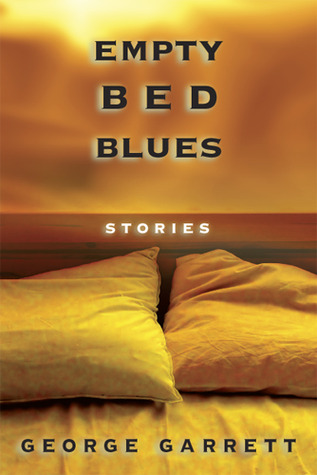This latest volume of George Garrett’s stories and sketches is proof that the old fox has not forgotten how to raid our American cultural henhouse without running away with a few plump chickens. Chronicles readers should not have to be told that Garrett, a long-time contributing editor to this magazine, is the master of several literary genres. In three books set in the early 17th century, Death of a Fox, The Succession, and Entered From the Sun, he practically reinvented the historical novel as a serious literary form, and, among his short fiction, there are tales of such perfection as Maupassant only dreamed of writing. As a teacher, he has inspired many serious writers across the country. Though Garrett is admittedly “getting on in years” and afflicted by maladies that only he can make seem funny, he has not lost his ability to surprise the reader into understanding.
George Garrett’s fiction is marked by several characteristics. Most obviously, there is his fondness for multiple points of view and multiple voices, a technique that has influenced several disciples, such as Madison Smartt Bell. More successfully than the most avant-garde postmodernists, Garrett has been able to incorporate our omnipresent popular culture into his writing, without ever (or hardly ever) descending to the trivial level of New York brat-pack writers. He has even succeeded in adapting techniques of film, television, and documentaries, though readers should never forget that he is the author of perhaps the worst film scenario ever produced, Frankenstein Meets the Space Monster. (Garrett blames the movie on the producers’ decision to mix two separate versions—one, deliberately funny; the other, only accidentally so. Every viewer will have to judge for himself.) In reading The King of Babylon Shall Not Come Against You (1998), I was struck not only by the pop-culture references but even more by the brilliant way he used a sequence of photographs to piece together a story. He might have taken a hint from Antonioni’s film Blowup, where solution of a murder mystery meant nothing, but, in Garrett’s hands, the shuffling of photos gives us an insight into the fraudulence of public life.
These 15 stories illustrate the breadth of Garrett’s range as a fiction writer. In the first or Prologue (a brief sketch of the type the author has honed in telling and retelling over the years), he recalls the “Independence Day” his family spent at the beach only to discover that the nice young men in the next-door cabin were John Dillinger and associates. One, “Ghost Me What’s Holy Now,” might have been an outtake from one of his Elizabethan novels, while in “Spilling the Beans: A Letter to Linda Evangelista,” Garrett resurrects his infamous alter ego, John Towne, the “hero” (if you’ll pardon the expression) of Poison Pen, a novel in the form of nasty and insinuating letters to famous people (e.g., one by a “Mexican” asking LBJ to reward him for all the many times he and his dead relatives have voted in every election). The author gives the ungrateful Towne an opportunity to quarrel with him over the very premise of his Poison Pen letters: Garrett’s “crackpot, cockeyed vision of America as a huge nation of celebrity lovers (starfkers without portfolio or hope of redemption), peasants worshipping their sleazy lesser gods.” He concedes to Miss Linda: “As a Godless people we need something to love and worship. In the absence of God (who has gone only He knows where), we are left with nothing but you people.”
Garrett has almost infinite patience and kindness for the often sad people who populate his stories: an adolescent obsessed with pornography and a Jewish girl obsessed with his obsession; a reluctant Nazi saboteur who alerts Hoover to the plot but gets 30 years for his pains; a classic doofus in the Army who succeeds in getting himself killed as a hero. The saddest fate is reserved for a young girl being exploited by pornographers. The sheriff (progressive but corrupt) can trap the pornographers by illegal means, but no one can rescue the girl. The sheriff does not know what happened to her after her exploiters were driven out of town. “Moved out to the West Coast, I heard. Where she probably has resumed her movie career and is hoping to be discovered some day and to become the next Kim Basinger or Michelle Pfeiffer.”
Or Linda Evangelista.
In a culture that adores celebrity-prostitutes, it is difficult even to mourn the destruction of innocence and the exploitation of children. Readers who have not experienced American popular culture (Amishmen over 70, for example) may not wish to confront Garrett’s honest depiction of the harsh reality. The rest of us should heed the words of the narrator in “Gator Bait”:
We must teach and encourage our children to be deeply and sincerely cynical. Otherwise they will be lost victims in the savage world we have made and are giving over to them.
Those who profess to be alarmed about the power and prevalence of cynicism in our time are really and truly (and maybe only) concerned that others will see through the pathetic shabby veils of their dedicated self-interest and self-aggrandizement.
[Empty Bed Blues, by George Garrett (Columbia: University of Missouri Press) 179 pp., $19.95]

Leave a Reply